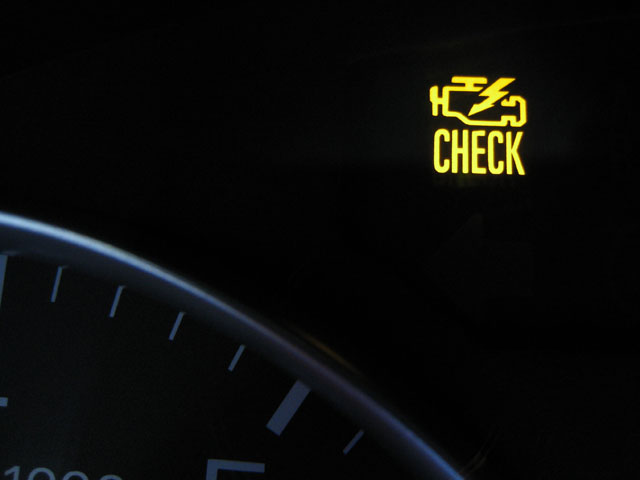
#### The dreaded Check Engine light…
Its ambiguity and potential for unsightly repair bills are enough to make anyone cringe. Simply put, we all know deep down inside that we are inevitably at the mercy of our vehicles. If your car has a bad day, you probably will as well. Here is your reminder, with every crank. And this check engine light carries the possibility of so much grief, you almost want to ignore it. But should you? Let’s discuss.
For the sake of you, your fleet and business, completely ignoring the check engine light is a bad idea. However, before taking a vehicle in for repairs and an expert opinion, it is worth the effort to troubleshoot for common problems. The issue could, in fact, be something simple that you can easily rectify without a technician.
To give you an idea, here is an informative article from Forbes that highlights the most common reasons for the check engine light - sorted by major manufacturers. For instance, If 17% of the time, a loose gas cap is the primary cause for your vehicle make, it’s worth checking that gas cap first.
Finding the problem
If you have a fleet of vehicles under your domain, it might be worth investing in a diagnostic tool that can plug into an OBD-II port and tell you the problem. These can be relatively affordable (less than $50 in some cases http://www.amazon.com/b?ie=UTF8&node=15707381) and there are smartphone-compatible products that are user-friendly even for the novice.
The key to any repair is knowing what to expect - both from a financial standpoint and the labor involved. A diagnostic tool (combined with a quick internet search for your trouble code) could give you an idea of the urgency and scope of the required service.
Certain issues can lead to poor performance, potentially costing much more than the price of the repair. A failing Oxygen sensor is a prime example of this. When your engine can’t calibrate oxygen intake correctly, fuel mileage and emissions can head south quickly. Similar issues result from a faulty catalytic converter, which is another common problem. Depending on your experience and skill level, you may be able to fix these and other problems yourself. Lifehacker has some DIY tips that could serve you well.
Use this info to make better decisions
As a fleet manager, it is important to document any trouble codes in a fleet management system. With this information, you can make better decisions in the future. Using aggregate data from your fleet management software, you can easily figure out which vehicles are costing more per mile to operate, which incur the most downtime, and what useful life each make/model can be expected to have.



